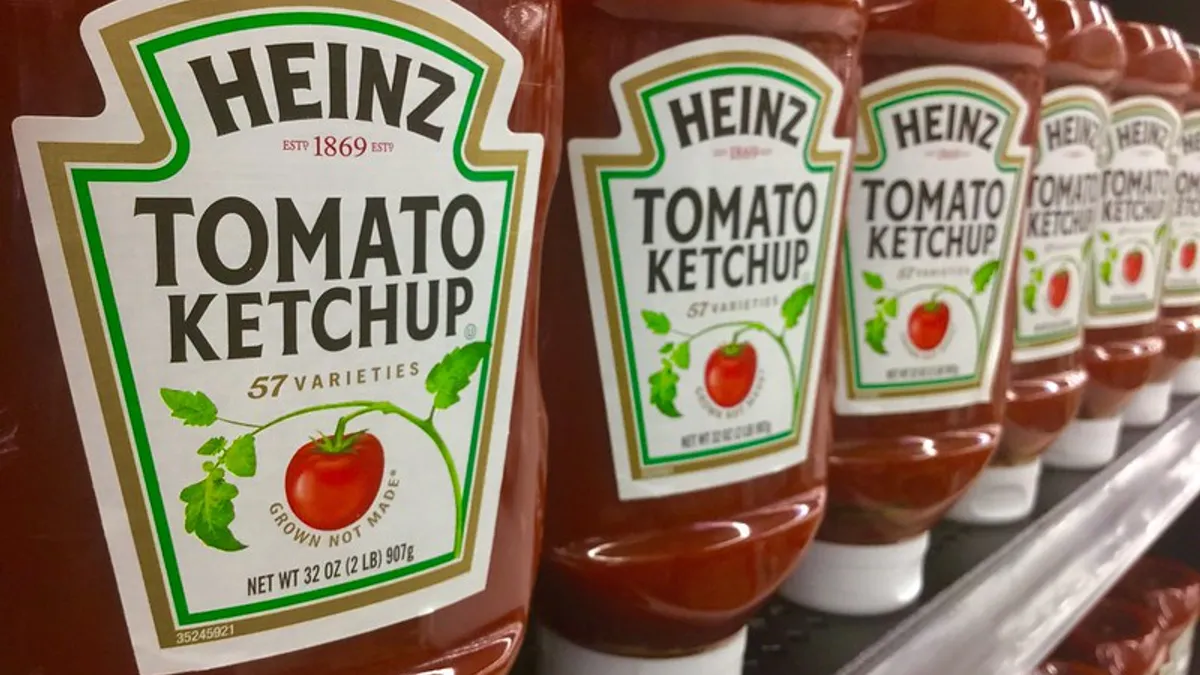Dive Brief:
- Kraft Heinz Food Co. has agreed to pay at least $3 million to settle claims brought by approximately 4,000 production and packaging workers who say the global food and beverage company's policies and procedures resulted in underpayment of wages under California law (Vazquez, et al. v. Kraft Heinz Foods Co., Nos. 16-cv-02749 and 17-cv-00077 (S.D. Calif. July 9, 2019)).
- The plaintiffs alleged that the company's software automatically deducted, without any punch-in or punch-out, a 30-minute meal period for shifts longer than six hours. The workers also claimed that manual edits to timekeeping records in either 15- or 30-minute increments meant that they were not paid all earned wages, and that the edits were done without their consent.
- Additionally, the employees claimed that the company failed to provide accurate wage statements, failed to timely pay all wages due to separated employees and failed to provide legally compliant rest and meal breaks or to pay for the breaks.
Dive Insight:
The federal Fair Labor Standards Act (FLSA) doesn't explicitly forbid automatic deductions, but employers should proceed with caution. Many recent cases highlight the risks employers face:
- Hi-Tech Pharmaceuticals agreed to pay $454,655 in back wages to settle claims that it violated the overtime and recordkeeping provisions of the FLSA by failing to pay employees overtime, unlawfully deducting time from workers' timecards when they took short rest breaks, improperly rounding workers' time under the FLSA and failing to keep proper time and payroll records.
- The University Medical Center of Southern Nevada agreed to pay up to $4.25 million to settle wage and hour claims under the FLSA and state law brought by employees who said the Las Vegas employer deducted a half an hour from their daily timecards without a determination of whether they had actually taken a full, uninterrupted 30-minute meal break.
- Nursing home workers in Alabama were recently allowed to move forward with their lawsuit alleging they were forced to work during meal breaks and that those meal breaks were automatically deducted from their pay.
Employers that use exceptions timekeeping can provide managers and employees training on its requirements and ensure that workers sign off on time records.
Employment law attorneys at Franczek Radelet have suggested that employer policies and procedures must provide ways for employees to report changes. The best practice is to require employees to clock out and back in for breaks, but automatic deductions can be an option if policies and practices are carefully structured, they said.













